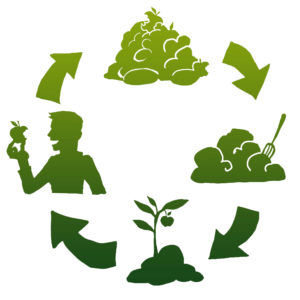 Lincoln residents will soon be able to bring their food waste and other compostable items to the transfer station under a new service provided by the Department of Public Works.
Lincoln residents will soon be able to bring their food waste and other compostable items to the transfer station under a new service provided by the Department of Public Works.
The DPW and Mothers Out Front – Lincoln, which has been working with town officials to get the composting program underway, are also asking residents to answer an anonymous online survey about their current recycling and composting habits. Organizers are trying to learn about effective ways to reduce the amount of waste sent to the incinerator and move the town toward “zero waste.” Click here to take the survey.
Once the program starts, residents can collect their compostable materials in biodegradable compost bags or paper bags and drop them in one of three 64-gallon closed and lined compost barrels at the transfer station (loose items will not be accepted). The DPW will offer buckets and compost bags to residents for a modest fee. There will be education tables at Donelan’s and the transfer station in coming weeks with more information.
The compost material will be picked up each week by Black Earth Compost at a cost of about $2,000 per year — but diverting compostable materials from the trash will actually save the town about $15,000 to $20,000 annually. The general industry standard is that compostable material (primarily food waste) accounts for 25% of the waste stream, according to DPW Superintendent Chris Bibbo. Lincoln currently pays $69.54 per ton to have trash hauled from the transfer station to the Wheelabrator trash-to-energy incinerator in North Andover.
- See a list of what you can and can’t compost from Black Earth Compost
Residents also have the option to sign up for curbside compost pick up with Black Earth Compost for $3.80 a week (plus purchase of an animal-proof 13-gallon bin for $24). The service will run in Lincoln if at least 30 households sign up, and customers get compost delivered to them several months later. Click here for details and to preregister.
For those with outdoor space, the DPW sells home composting bins at its Lewis Street headquarters for $60 apiece.
Lincoln joins other cities and town in Massachusetts (including the city of Boston) that are starting or expanding their composting programs to reduce their municipal waste and carbon footprint.
Leave a Reply